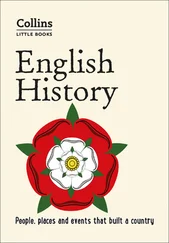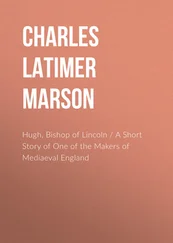Paul Vinogradoff - Villainage in England - Essays in English Mediaeval History
Здесь есть возможность читать онлайн «Paul Vinogradoff - Villainage in England - Essays in English Mediaeval History» — ознакомительный отрывок электронной книги совершенно бесплатно, а после прочтения отрывка купить полную версию. В некоторых случаях можно слушать аудио, скачать через торрент в формате fb2 и присутствует краткое содержание. Жанр: foreign_prose, Юриспруденция, История, foreign_edu, foreign_antique, на английском языке. Описание произведения, (предисловие) а так же отзывы посетителей доступны на портале библиотеки ЛибКат.
- Название:Villainage in England: Essays in English Mediaeval History
- Автор:
- Жанр:
- Год:неизвестен
- ISBN:нет данных
- Рейтинг книги:4 / 5. Голосов: 1
-
Избранное:Добавить в избранное
- Отзывы:
-
Ваша оценка:
- 80
- 1
- 2
- 3
- 4
- 5
Villainage in England: Essays in English Mediaeval History: краткое содержание, описание и аннотация
Предлагаем к чтению аннотацию, описание, краткое содержание или предисловие (зависит от того, что написал сам автор книги «Villainage in England: Essays in English Mediaeval History»). Если вы не нашли необходимую информацию о книге — напишите в комментариях, мы постараемся отыскать её.
Villainage in England: Essays in English Mediaeval History — читать онлайн ознакомительный отрывок
Ниже представлен текст книги, разбитый по страницам. Система сохранения места последней прочитанной страницы, позволяет с удобством читать онлайн бесплатно книгу «Villainage in England: Essays in English Mediaeval History», без необходимости каждый раз заново искать на чём Вы остановились. Поставьте закладку, и сможете в любой момент перейти на страницу, на которой закончили чтение.
Интервал:
Закладка:
It may be urged that the new turn thus taken is not altogether beneficial for practical life. Men of fanatical conviction were more likely to act and die for the eternal truth revealed to them, than people reflecting on the relative character of human arrangements. But can one get blissfully onesided by merely wishing to be so? And is it not nobler to seek knowledge in the hope that it will right itself in the end, than to reject it for the sake of being comfortable? However this may be, the facts can hardly be denied: the aspiration of our age is intensely historical; we are doing more for the relative, than for the absolute, more for the study of evolution than for the elucidation of principles which do not vary.
Sketch of the literary development of social history as a necessary introduction to its treatment.
It will not be my object to give a sketch of the gradual rise of historical study in the present century: such an undertaking must be left to later students, who will command a broader view of the subject and look at it with less passion and prejudice than we do now. But Lord Acton's excellent article 2 2 English Historical Review, No. 1.
has shown that the task is not quite hopeless even now, and I must try, before starting on my arduous inquiry into the social history of the middle ages in England, to point out what I make of the work achieved in this direction, and what object I have in view myself. Quite apart from any questions of detail which may come under consideration as the treatment of the subject requires it, I have to say in what perspective the chief schools of historians present themselves to my view, in what relation they stand to each other, to show how far they have pushed the inquiry, and what problems still remain unsolved. Such a preliminary sketch must not be carried out with a view to criticism and polemics, but rather as the general estimate of a literary movement in its various phases.
Late recognition of the value of social history.
It is a remarkable fact, that the vast importance of the social side of history has been recognised later than any other aspect of that study. Stating things very broadly, one may say that it was pushed to the fore about the middle of our century by the interests and forces at play in actual life: before 1848 the political tendency predominates; after 1848 the tide turns in favour of the social tendency. I mean that in the first half of the century men were chiefly engaged in reorganising the State, in trying to strike a balance between the influence of government and the liberties of the people. The second half of the century is engrossed by the conflict between classes, by questions of economical organisation, by reforms of civil order. Historical literature, growing as it was in the atmosphere of actual life, had to start from its interests, to put and solve its problems in accordance with them. But it is no wonder that the preceding period had already touched upon a number of questions that were fated to attract most attention in later research. The rise of the Constitution, for instance, could not be treated without some regard being paid to the relative position of classes; it would have been out of the question to speak of political feudalism without taking into account the social bearing of the system. And so a sketch of the literary treatment of social questions must begin with books which did not aim directly at a description of social history.
Characteristics of the work done in the seventeenth and eighteenth centuries.
I shall not detain the reader over the work achieved in the seventeenth and eighteenth centuries. The learning of a Selden or of a Madox is astounding, and a student of the present day has to consult them constantly on particular questions; but they never had in mind to embrace the history of their country as a whole. Facts are brought into a system by Coke, but the system is strictly a legal one; undigested historical knowledge is made to yield the necessary store of leading cases, and, quite apart from the naive perversion of most particulars, the entire view of the subject is thoroughly opposed to historical requirements, for it makes the past an illustration of the present, and regards it as planned on the same lines. There is no lack of books setting forth historical proof for some favourite general thesis or arranging facts according to some general idea, but such attempts were distinguished by unbounded imagination and by endless sacrifices of fact to the object of the writer's devotion. The curious literary byplay to the struggle of political party which Aug. Thierry 3 3 In his Considérations sur l'histoire de France.
has artistically illustrated in France from the writings of Boulainvilliers and Dubos, Mably and Lézardière, could certainly be matched in England by a tale of the historical argumentation of Brady 4 4 History of Boroughs.
, or Petyt 5 5 Ancient Rights of the Commons of England.
, or Granville Sharp. Nothing can be more eloquent in a sense than the title given by this last author to his book on the system of frankpledge:—"An account of the Constitutional English Polity of Congregational Courts, and more particularly of the great annual court of the people, called the View of Frankpledge, wherein the whole body of the Nation was arranged into the regular divisions of Tythings, Hundreds, etc.:—the happy effect of that excellent institution, in preventing robberies, riots, etc., whereby, in law, it was justly deemed 'Summa et maxima securitas:'—that it would be equally beneficial to all other nations and countries, as well under monarchical as republican establishments; and that, to the English Nation in particular, it would afford an effectual means of reforming the corruption of Parliament by rendering the representation of the people perfectly equal, in exact numerical proportion to the total number of householders throughout the whole realm 6 6 Quoted by Palgrave, English Commonwealth, i. 192, from the second edition of 1786. The first appeared in 1784.
."
Historical research, in the true sense of the word, was indeed making its first appearance in the eighteenth century, and it was more fruitful in England than in any other country, because England was so far ahead of the Continent in its political condition: the influence of an intelligent society in political affairs had for its counterpart a greater insight into the conditions of political development. But the great English historians of the eighteenth century were looking to problems in other fields than that of social history. Robertson was prompted by an interest in the origins of that peculiar community called Western Europe, so distinctly dismembered in its component States and so closely united by ideal and material ties; Gibbon could see the shadows of the old world in which the new world was living; both had been attracted to research by an admirable sense of influences deeper and stronger than nationality, or State, or class, and both remained indifferent to the humbler range of English social history. Hume took his stand on England, but he had to begin with a general outline and the explanation of the more apparent changes in State and Church.
Blackstone's Commentaries.
In this way current notions on our questions remained towards the close of the eighteenth century still undisturbed by writers of a high order. We may take as a fair sample of such current notions Sir William Blackstone's historical digressions, especially those in the second volume of his Commentaries 7 7 The first edition of the Commentaries appeared in 1765. I have been using that of 1800.
. There is no originality about them, and the lack of this quality is rather an advantage in this case: it enables us through one book to glance at an entire literature. I may be allowed to recall its most striking points to the mind of my readers.
Интервал:
Закладка:
Похожие книги на «Villainage in England: Essays in English Mediaeval History»
Представляем Вашему вниманию похожие книги на «Villainage in England: Essays in English Mediaeval History» списком для выбора. Мы отобрали схожую по названию и смыслу литературу в надежде предоставить читателям больше вариантов отыскать новые, интересные, ещё непрочитанные произведения.
Обсуждение, отзывы о книге «Villainage in England: Essays in English Mediaeval History» и просто собственные мнения читателей. Оставьте ваши комментарии, напишите, что Вы думаете о произведении, его смысле или главных героях. Укажите что конкретно понравилось, а что нет, и почему Вы так считаете.












